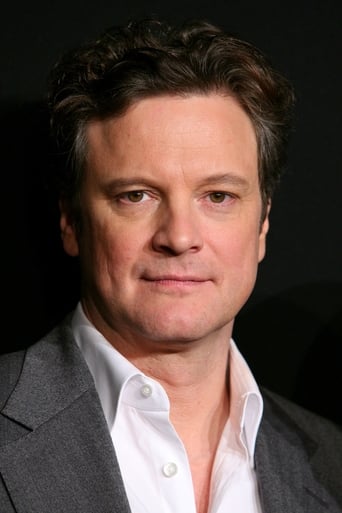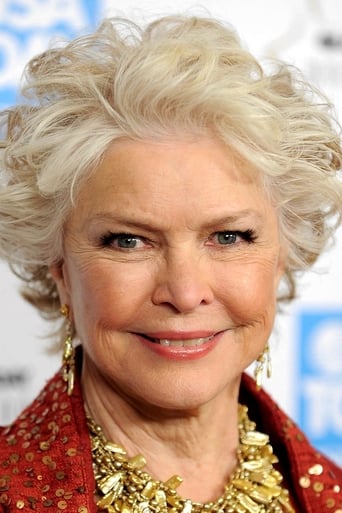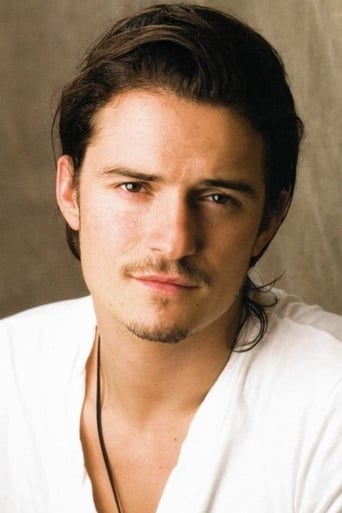mechteldehuning
I was watching it, cringing at Colin's Texas accent and wondering why the people raised in the same town wouldn't have been coached by the same voice coach. They all had different accents. And why when the long haired daughter yelled her boyfriend's name over and over it went from southern drawl to Pennsylvania standard. Harse, Harrsse, Har ris, Harris! Southerners don't speak northern to each other in order to be understood better.Anyway, I also heard the script as I was judging the accents. Holy smokes, those are great words, I thought. They are simple words that act as symbols and metaphors in little this story about so much. At the end I watched the credits: Horton Foote wrote it? I loved Shelby, just loved him. How can there be so much talent in one family, even though they were just third cousins? I loved how guileless everyone was. Or even if they weren't telling the truth, they believed for awhile what they said.
tarmcgator
I gather that Horton Foote chose Durham, N.C., as the setting for his MAIN STREET screenplay because of its symbolic value as a city that has undergone substantial changes in its economy in the past half-century, and he wanted to write about people trying to deal with change being imposed on them. I am not going to comment on the overall quality of the film here, except to say that, given the anemic screenplay, the reputable cast seems flat and largely listless, as if they realized once the shooting started just how bad the script was.No, what I want to address is the portrayal of my hometown, to which I chose to move and in which I have lived for the past twenty-five years. At the risk of sounding like Joe the Civic Booster, the city of Durham portrayed in MAIN STREET bears only faint, surface resemblance to the actual place. Anyone who manages to sit through this movie should NOT think they've learned much about the actual Durham. For one thing, Durham is not a small town but a city of more than 200,000 residents, part of a larger metropolitan area (Wake, Durham, and Orange counties) exceeding 2 million.Yes, downtown Durham is struggling. It was struggling before the Great Recession and it continues to struggle with reinvigorating itself as a vital city center. It needs more retail businesses, more reasons for the suburban middle-class to come downtown and enjoy the urban ambiance. In that respect, it's hardly alone among U.S. cities, small and large. Other parts of Durham – notably, the older working class neighborhoods within a mile or so of downtown – also are hurting.The downtown area is only part of the city. Moreover, downtown Durham has snapped back in the past few years. At least as far back as the early 1980s, old tobacco industry structures in the inner city were being rehabbed. Durham held its last tobacco market (where farmers would auction off their crop) in 1986, and the huge American Tobacco complex closed the following year. By 2001, the last cigarette plant in the city (Liggett Group) had gone. In the past decade, despite a slow start and the general downturn of the U.S. economy, many downtown buildings have been renovated and repurposed as residential, office, and retail spaces, or are in the process. The old tobacco warehouse district has become the Durham Central Park, and there is a growing bar and restaurant scene downtown.Downtown Durham also is the site of much new construction over the past two decades, including the Durham Bulls Athletic Park, the Durham Performing Arts Center, the new urban transit center and a new Durham County legal complex. There's a big, modern Marriott hotel and convention center there, too, rather than the seedy little hotel in which Gus LeRoy stayed in the film. New, privately funded construction has complemented the new public structures, as well as refurbished buildings that originated in the early 20th century and before (such as the Carolina Theater, where MAIN STREET was shown here). As I said, downtown is only part of Durham. MAIN STREET makes no mention of Durham's two thriving universities. Duke, with its world-class medical center, is the city's largest employer. N.C. Central University is regarded as a leader among the nation's historically black state universities. (Harris Parker, the cop in MAIN STREET, could have been attending NCCU's School of Law, one of six university law schools in North Carolina and the only one where a student can earn a law degree at night while working his or her day job.) The film also makes no mention of Research Triangle Park, which since the 1960s has been providing jobs for thousands of residents of Durham and other nearby counties at such employers as GlaxoSmithKline, Cisco, Merck, BASF, Intel, and the National Institute for Environmental Health Sciences, as well as at IBM's largest U.S. operation. The city has numerous suburban residential developments and shopping areas as well as several well-preserved old neighborhoods and commercial districts closer to downtown.Durham is well-integrated into the metropolitan area known as the Research Triangle. Raleigh, Chapel Hill, Cary, Carrboro, UNC-Chapel Hill, N.C. State University are indeed nice places for Durham residents to visit -- as well as places where many of them work --and relatively easy to get to. I missed MAIN STREET when it opened in Durham, but I caught it at a theater in Cary, an easy thirty-minute drive from my Durham home.Please – I know I sound like a Chamber of Commerce flack (which I am not), but Durham is NOT some isolated urban hellhole full of desperate, blue-collar types and faded aristocrats lamenting the passing of the city's tobacco heyday and wondering where their next job is coming from. Unfortunately, there are several other small cities and towns in North Carolina that resemble the Durham of MAIN STREET, places whose former textile and furniture mills have gone overseas and left downtowns devastated, hungry for industry and development. Durham is always after new companies and more jobs as well – especially in the current economy – but, again, it only vaguely resembles the city depicted in MAIN STREET. And, believe me, if Gus LeRoy came to town proposing to truck "hazardous waste" from Louisiana to Texas via Durham (?), the public outcry would be deafening.






